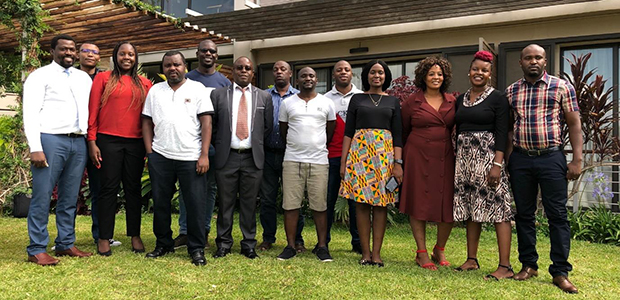As part of the SOUTHMOD project UNU-WIDER, the Zambia Institute for Policy Analysis and Research (ZIPAR), the International Labour Organization (ILO) and Southern African Social Policy Research Insights (SASPRI) organized a follow-up three-day MicroZAMOD training event for members of the Zambian government, civil society organizations and academic researchers. The purpose of the training was to introduce participants to the latest version of MicroZAMOD (v2.4).
The training consisted of four sessions on the key principles and methods of MicroZAMOD and a series of practical exercises in order to equip attendees with a greater understanding of how to navigate, build and implement a range of policy reform scenarios in the model.
A core group of 13 civil servants and researchers participated in the training for all three days (with additional people only attending for part of the event).
In the feedback session, a number of people who had not attended the training last year reflected on how they were happy to have attended the training and learnt about MicroZAMOD, and said that the model would be useful for their respective ministries, especially as a tool for evidence-based policy making. Participants also expressed an interest in the use of other types of datasets to underpin and enhance the model.

Tools for comparing different policy scenarios
Tax-benefit microsimulation models — which combine representative household-level data on incomes and expenditures and detailed coding of tax and benefit legislation — have proven to be an extremely useful tool for policy makers and researchers alike. Through the models it is possible to analyse and compare the effects of different policy scenarios on poverty, inequality, and government revenues.
MicroZAMOD was launched in November 2017. Possible policy reform simulations in MicroZAMOD include, for example, a scaled-up social cash transfer scheme, a universal child benefit, a universal pension payment to the elderly or a youth unemployment benefit.

 Join the network
Join the network


